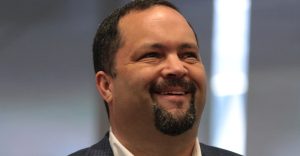Op-Ed
Many Students Fail to Profit from For-Profit Colleges
By Julianne Malveaux
NNPA Columnist
According to the National Center for Educational Statistics, about 1.7 million people will receive their bachelor’s degrees, and another nearly 750,000 will receive associate’s degrees this May and June. The numbers have been rising over the past 10 years, with 22 percent more receiving bachelor’s degrees (the growth in women’s degrees is faster than that of men), and 12 percent more associate’s degrees (again, with the degrees awarded to women growing faster than those awarded to men).
Too many of these students will graduate with heavy debt. While the data suggest that the average student graduates with about $30,000 of debt, the fact that some students have no debt at all makes the number even higher. African American students are nearly twice as likely to graduate with debt as Caucasian students. And it is often much harder for African American students to find jobs than it is for others. Still, a college degree makes a difference in life chances and lifetime earnings, which is one of the reasons that public policy has focused on postsecondary education.
Students who have attended for-profit colleges go to school with the same hopes and dreams as those who attend traditional not-for-profit-universities. They attend schools such as Kaplan, DeVry and Corinthian because they want to improve their education and find better jobs. They go into debt, and seek grants because they believe the investment is worth it. And too many of them have been sold a bill of goods.
Corinthian Colleges, Inc. had more than 77,000 students at its peak, although those numbers have dropped since then. Their students, in 2012-2013 were mostly adults who worked full time, mostly minority (51.8 percent), and mostly low-income enough to qualify for Pell Grants (72.9 percent). According to one source, these students borrowed more than $7,600 each year to pay for their education.
Corinthian is among the for-profit schools that depend on the federal government for their income stream. They direct them to apply for Pell grants, push them to seek federal student loans that have subsidized interest rates, and encourage them to get bank loans with higher interest rates. They tell students that these loans are worth it because it will help them get better jobs later.
The federal government has been scrutinizing Corinthian and other for-profit colleges for years, especially because they have found that these colleges often exaggerate their success in placing students in better jobs. Now, Corinthian Colleges have shut down, leaving more than 16,000 students stranded. These students have used up semesters of their Pell grant eligibility (which is capped at 12 semesters), and have thousands of dollars of debt. If they are mid-degree, they face the challenge of trying to transfer credits to another college. While there may be some relief for these students who owe money, others will either be forced to repay debt or imperil their credit standing.
Is Corinthian the exception, or is it the rule in the world of for-profit colleges? We know that these colleges target adult learners, and market to minority populations. More than half of the students at Corinthian were students of color, and at many of the other for-profit colleges the enrollment of minority students exceeded 30 percent. We know that these colleges rely on tuitions for their profit, which means that when they find students who qualify for Pell grants, it boosts their bottom line.
According to the California Association of Private Postsecondary Schools (CAPPS), at least 60 percent of the students enrolled in the top six for-profit colleges received Pell grants. Corinthian topped the group with nearly 73 percent of their students receiving Pell grants, but ITT Technical Institutes was not far behind with a 71.8 of their students receiving Pell grants. In comparison, 39 percent of the students at public colleges, and 34 percent at private nonprofit colleges have Pell grants.
Some for-profit colleges do a better job than Corinthian, and many have not run into trouble with the federal government. Still, because taxpayer dollars are being used to finance these colleges, they must be more carefully scrutinized both by the federal government and by accrediting associations. Furthermore, the Corinthian debacle is a warning to students who might get a lower cost and better education by going to a public university or to a community college. Before enrolling in one of these colleges, students need to consider other options, and also check on the placement records these schools like to brag about.
Students of color are especially vulnerable to the hype these colleges offer. They say they provide opportunities and jobs, but too often they don’t. They market to those at the periphery; those who believe their lives would be significantly improved with education. Their lives can improve with more learning, but the students must beware of for-profit colleges that often promise more than they can give, and push students into debt. The closing of the Corinthian Colleges, Inc. is a cautionary tale for those who choose for-profit colleges as the gateway for their hopes and dreams.
Julianne Malveaux is an author and economist. She can be reached at www.juliannemalveaux.com.
###
Alameda County
Seth Curry Makes Impressive Debut with the Golden State Warriors
Seth looked comfortable in his new uniform, seamlessly fitting into the Warriors’ offensive and defensive system. He finished the night with an impressive 14 points, becoming one of the team’s top scorers for the game. Seth’s points came in a variety of ways – floaters, spot-up three-pointers, mid-range jumpers, and a handful of aggressive drives that kept the Oklahoma City Thunder defense on its heels.

By Y’Anad Burrell
Tuesday night was anything but ordinary for fans in San Francisco as Seth Curry made his highly anticipated debut as a new member of the Golden State Warriors. Seth didn’t disappoint, delivering a performance that not only showcased his scoring ability but also demonstrated his added value to the team.
At 35, the 12-year NBA veteran on Monday signed a contract to play with the Warriors for the rest of the season.
Seth looked comfortable in his new uniform, seamlessly fitting into the Warriors’ offensive and defensive system. He finished the night with an impressive 14 points, becoming one of the team’s top scorers for the game. Seth’s points came in a variety of ways – floaters, spot-up three-pointers, mid-range jumpers, and a handful of aggressive drives that kept the Oklahoma City Thunder defense on its heels.
One of the most memorable moments of the evening came before Seth even scored his first points. As he checked into the game, the Chase Center erupted into applause, with fans rising to their feet to give the newest Warrior a standing ovation.
The crowd’s reaction was a testament not only to Seth’s reputation as a sharpshooter but also to the excitement he brings to the Warriors. It was clear that fans quickly embraced Seth as one of their own, eager to see what he could bring to the team’s championship aspirations.
Warriors’ superstar Steph Curry – Seth’s brother – did not play due to an injury. One could only imagine what it would be like if the Curry brothers were on the court together. Magic in the making.
Seth’s debut proved to be a turning point for the Warriors. Not only did he contribute on the scoreboard, but he also brought a sense of confidence and composure to the floor.
While their loss last night, OKC 124 – GSW 112, Seth’s impact was a game-changer and there’s more yet to come. Beyond statistics, it was clear that Seth’s presence elevated the team’s performance, giving the Warriors a new force as they look to make a deep playoff run.
Activism
Essay: Intentional Self Care and Community Connections Can Improve Our Wellbeing
At the deepest and also most expansive level of reality, we are all part of the same being, our bodies made from the minerals of the earth, our spirits infused by the spiritual breath that animates the universe. Willingness to move more deeply into fear and pain is the first step toward moving into a larger consciousness. Willingness to move beyond the delusion of our separateness can show us new ways of working and living together.

By Dr. Lorraine Bonner, Special to California Black Media Partners
I went to a medical school that was steeped in the principles of classical Western medicine. However, I also learned mindfulness meditation during that time, which opened me to the multifaceted relationship between illnesses and the interconnecting environmental, mental and emotional realities that can impact an individual’s health.
Therefore, when I began to practice medicine, I also pursued training in hypnosis, relaxation techniques, meditation, and guided imagery, to bring a mind-body focus to my work in medical care and prevention.
The people I saw in my practice had a mix of problems, including high blood pressure, diabetes, and a variety of pain issues. I taught almost everyone relaxation breathing and made some general relaxation tapes. To anyone willing, I offered guided imagery.
“My work embraced an approach to wellness I call “Liberatory Health” — one that not only addresses the treatment and management of disease symptoms but also seeks to dismantle the conditions that make people sick in the first place.”
From my perspective, illness is only the outermost manifestation of our efforts to cope, often fueled by addictions such as sugar, tobacco, or alcohol, shackled by an individualistic cult belief that we have only ourselves to blame for our suffering.
At the deepest and also most expansive level of reality, we are all part of the same being, our bodies made from the minerals of the earth, our spirits infused by the spiritual breath that animates the universe. Willingness to move more deeply into fear and pain is the first step toward moving into a larger consciousness. Willingness to move beyond the delusion of our separateness can show us new ways of working and living together.
To put these ideas into practical form, I would quote the immortal Mr. Rogers: “Find the helpers.” There are already people in every community working for liberation. Some of them are running for office, others are giving food to those who need it. Some are volunteering in schools, libraries or hospitals. Some are studying liberation movements, or are working in urban or community gardens, or learning to practice restorative and transformative justice, or creating liberation art, music, dance, theater or writing. Some are mentoring high schoolers or apprenticing young people in a trade. There are many places where compassionate humans are finding other humans and working together for a better world.
A more compassionate world is possible, one in which we will all enjoy better health. Creating it will make us healthier, too.
In community, we are strong. Recognizing denial and overcoming the fragmenting effects of spiritual disorder offer us a path to liberation and true health.
Good health and well-being are the collective rights of all people!
About the Author
Dr. Lorraine Bonner is a retired physician. She is also a sculptor who works in clay, exploring issues of trust, trustworthiness and exploitation, as well as visions of a better world.
Activism
Opinion: Can Donald Trump Pole Dance?
Given all that is happening, if the presidency was more like pole dancing, you know Trump would be flat on his butt.

By Emil Guillermo
The news cycle has been buzzing the last few weeks. Xi, with Putin and Kim, the sweethearts of Trump carousing alone without him? The victims of the pedophile Epstein speaking out publicly in DC.
Then, there’s the release of that salacious letter Donald Trump allegedly wrote to Jeffrey Epstein. Trump said the letter didn’t exist. But it does.
Timing is everything.
Additionally, there are further concerns, such as the Supreme Court removing restrictions on ICE interactions. ICE Agents can stop anyone now. For any reason. And there’s the threat of the U.S. sending the military to fight crime in Chicago. Trump even posted a meme of himself as a character in “Apocalypse Now.”
All that with bad polls and bad economic numbers, and these topics are dominating the news cycle — Trump era chaos.
Given all that is happening, if the presidency was more like pole dancing, you know Trump would be flat on his butt.
The reality is the opposite. He keeps going strong like nothing’s happened. Inexplicably, Trump always seems to defy gravity.
That’s why to reassure myself with reality, I just think of Trump on a pole. Dancing. He was born on Flag Day, after all.
I’ve got pole dancing on my mind because I’m in Canada at the Vancouver Fringe Festival doing my show, “Emil Amok 69, Everything’s Flipped,” about how the current political situation gets very personal.
Get tickets here if you’re near:
I’ve performed at 16 fringe festivals, and I always look for unique performers. This year, in my same venue (the Revue Stage) I found her in a show, “The Pole Shebang.”
Andrea James Lui may look like a typical Asian American at first.
But she’s Asian Canadian, married to an Australian, who now lives down under.
At the Vancouver Fringe, she highlights her special identity.
Pole Dancer
Yes, pole dancing has come to the fringe. Leave your dollar bills at home, this is not that kind of pole dancing.
This is more Cirque Du Soleil-ish- acrobatic stuff, yet it’s hard to deny the sexiness when a woman flawlessly swings from a pole with her legs apart.
The show is more intriguing than it is titillating.
Lui has created a behind-the-scenes look at the “polar” experience.
“She could have been a physicist,” says her big sister Christina, who despite saying that, supports her sister 100 percent.
Lui touches on some of the emotional depth in the poled subculture. But there’s plenty more to mine in the future. “Polar Bare,” the Musical? I’d see it.
Trump on a Pole
So that’s how I’ve come to the polar metaphor.
As Trump flails in the news, I picture him on a pole.
The letter to Epstein is further proof of the character of the man.
Will he stay afloat?
Not if the presidency were more like pole dancing.
You can’t lie on the pole.
That’s one way all of us in the Trump era can get to the truth.
About the Author
Emil Amok is a veteran journalist, commentator, and stage monologist. He has written a weekly column on Asian Americans for more than 30 years.
Contact: www.amok.com
-

 Activism4 weeks ago
Activism4 weeks agoOakland Post: Week of November 12 – 18, 2025
-

 Activism3 weeks ago
Activism3 weeks agoIN MEMORIAM: William ‘Bill’ Patterson, 94
-

 Activism4 weeks ago
Activism4 weeks agoHow Charles R. Drew University Navigated More Than $20 Million in Fed Cuts – Still Prioritizing Students and Community Health
-

 Bay Area4 weeks ago
Bay Area4 weeks agoNo Justice in the Justice System
-

 #NNPA BlackPress3 weeks ago
#NNPA BlackPress3 weeks agoLewis Hamilton set to start LAST in Saturday Night’s Las Vegas Grand Prix
-

 #NNPA BlackPress3 weeks ago
#NNPA BlackPress3 weeks agoBeyoncé and Jay-Z make rare public appearance with Lewis Hamilton at Las Vegas Grand Prix
-

 Activism3 weeks ago
Activism3 weeks agoOakland Post: Week of November 19 – 25, 2025
-

 #NNPA BlackPress4 weeks ago
#NNPA BlackPress4 weeks agoThe Perfumed Hand of Hypocrisy: Trump Hosted Former Terror Suspect While America Condemns a Muslim Mayor























































